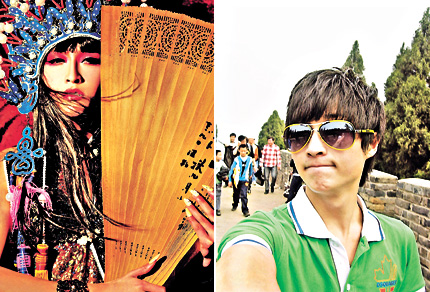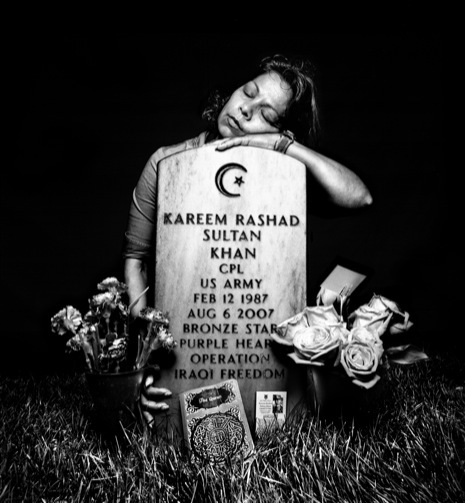I know, it’s been over-discussed and picked over. But China Daily actually has an op-ed piece today on the subject, and it begs for comment. It’s rare to see any mention of this topic at all in the Chinese media, but it’s depressing (though not surprising) to see a story that is totally one-sided.
The gist of it is that the massacre is all a big myth, concocted by a Western press that lies its head off. Everyone’s lying about it. Reporters who I know personally are lying about it. The only ones telling the truth is the government.
Tiananmen remains the classic example of the shallowness and bias in most Western media reporting, and of governmental black information operations seeking to control those media.
The usual Western media conspiracy, always out to harm China.
The editorial’s “argument” is that they found “some reporters in the square at the time” who said they saw no massacre, and that’s good enough for them, despite a mountain of evidence. Case closed.
This is weasly, because as everyone knows by now there was no massacre inside the square, as was first reported during “the fog of war.” Sometimes an uninformed journalist continues to refer to a massacre inside the square, and that is sloppiness. That there were shootings and deaths on side streets and other parts of town on June 4 — in other words, a massacre — is a matter of fact, just as it’s a matter of fact that an angry crowd killed a handful of soldiers. What is not known is how many were killed, but even if it was just a few it’s still a massacre. (My country had its own massacre, Kent State, in which four students were killed. A massacre is a massacre.)
I won’t labor the point with my own interpretation. Instead, let’s just go to some eyewitnesses.
First, Chinese author Ma Jian writes of his interview with a man who was in the crowd who had his arm crushed by a tank and is now an amputee.
“It happened right here,” he told me, “just by these white railings. A tank charged down Changan Avenue, and sprayed tear gas into the air. There was a big crowd of us. We were coughing and choking. We rushed on to the pavement, and I was squashed back against these railings. A girl dropped to her knees. I was grasping the railings with one hand to stop myself falling and with the other I offered her a handkerchief and told her to use it as a mask. Just as I was leaning over to hand it to her, another tank roared up and careered into us. Thirteen people were crushed to death but I only lost my arm. The tank commander knew exactly what he was doing.” He stared down at the patch of asphalt at his feet and then glanced nervously at the police vans parked on the other side of the road. It was rush hour; cars and taxis were streaming past us.
What a terrifying experience, I said, gripping the white railings.
“Yes, it was,” he replied quite calmly. “But I wasn’t truly afraid until I saw Deng Xiaoping on television, telling the martial law troops: ‘Foreigners say that we opened fire, and that I admit, but to claim that army tanks drove over unarmed citizens, that is a disgraceful slur.’ My scalp tightened. I was a living witness to the truth. What if one day they came to get me? … For two years I never dared go out at night, I never spoke about what happened. Policemen came to interrogate me almost every day, but none of us ever mentioned the tanks. Every anniversary of 4 June, the police would come to my house with pillows and mattresses and sleep on my bedroom floor. Just to stop me speaking to foreign journalists.”
Timothy Brook, who received a Ph.D. in History and East Asian Languages at Harvard University and taught in Shanghai:
The first rounds of fire catch everybody by surprise. The people in the streets don’t expect this to happen. There are a couple of hospitals right near Muxidi, and the casualties start showing up within 10 or 15 minutes of the first round of gunfire. The casualties run very high because people didn’t expect to be shot at with live ammunition. When they start firing, people say, “Oh, it’s rubber bullets.” Even after it becomes clear, even after they realize that the army is going to go ahead at any cost, people still pour into the streets. This is the amazing thing: People were just so angry, so furious at what was happening in their city that they were not going to step back and let the army do what it was doing. This is why the casualties from Muxidi on east towards Tiananmen Square were so high. This is the major military confrontation of the evening.
Self-described former Maoist and reporter for the Globe and Mail Jan Wong (same link as above):
That Saturday night the army started coming in … the city, and so the people rushed out again. This was becoming a regular occurrence: Every time people said, “The army’s coming,” everybody would rush out and stop them. And they rushed out this time, except the army shot them, and so they started running down the alleyways.
People in [the Muxidi] apartment buildings could hear all this. It was summertime and the windows were open, so they heard the gunfire; they heard people screaming; and they saw the soldiers shooting at people. They would lean out their windows and scream at the soldiers and curse them and throw things. I had that feeling myself. I wanted to throw things out the window of the Beijing Hotel because you just felt anger: “Why are you doing this to the people?” …
What they did was they just raked the buildings with their gunfire, and they were shooting people. People were being killed in their own kitchens because these bullets were very lethal. … They just shot at them because they were trying to get into the city. They had been ordered to take Tiananmen, and they were going to get there no matter what it took.
From Dr. Jiang Yanyong, the whistleblower who blew the cover of the conspiracy to convince the world there was no SARS in Beijing, and who was later harassed for his efforts:
I was chief of the department of general surgery on June 4, 1989. On the night of June 3, I heard repeated broadcasts urging people to stay off the streets. At about 10 p.m., I was in my apartment when I heard the sound of continuous gunfire from the north. Several minutes later, my pager beeped. It was the emergency room calling me, and I rushed over. What I found was unimaginable–on the floor and the tables of the emergency room were seven young people, their faces and bodies covered with blood. Two of them were later confirmed dead by EKG. My head buzzed and I nearly passed out. I had been a surgeon for more than 30 years. I had treated wounded soldiers before, while on the medical team of the PLA railway corps that built the Chengdu-Kunming Railway. But their injuries resulted from unavoidable accidents during the construction process, while before my eyes, in Beijing, the magnificent capital of China, lying in front of me, were our own people, killed by our people’s army, with weapons supplied by the people.
Even eyewitness Philip Cunningham, who often supports the CCP, wrote of that day,
The Tiananmen demonstrations were crushed, cruelly, breaking the implicit pact that the People’s Liberation Army would never turn its guns on the people and burying student activism for many years to come, but not before inspiring millions in China and around the world to push for reform and change, heralding the fall of communism in Eastern Europe and the Soviet Union.
The editorial repeats all the cliches of the deniers. Referring to a book by Philip Cunningham, it says:
It quotes one of the student leaders, Chai Ling, as having said that creating a “sea of blood” might be the only way to shake the government. If frustrated students leaving the square carried out those petrol bomb attacks on troops, then the anger of the government becomes a lot more understandable. But I doubt whether any of those responsible for the original phony story will get round to details like that.
There were some attacks on troops, and that hasn’t been denied. But most of the demonstrators leaving the square did so peacefully. Most of the shooting was not in response to petrol bomb attacks. And one foolish and out-of-context quote from Chai Ling does not make for an excuse for a massacre. Blogger Xu Eberlein, one of my favorites, adds some nuance:
Reading excerpts of the newly published Tiananmen Moon by Philip Cunningham, the very journalist who interviewed Chai Ling 20 years ago, made me feel that Chai Ling might have been more innocent than some have thought. Although her idea of using bloodshed to arouse people was hardly a moral one, she appeared to be sincere and serious about the student movement and was indignant toward some other selfish power-thirsty student leaders. As such, I’d like to believe the young Chai Ling twenty years ago was a humanly imperfect idealist, as young activists are. If she sometimes took herself too importantly, it was largely because of the situation: being young and the leader of a mass movement can carry anyone away.
I can go on and on with more testimony from reporters and Chinese citizens who were all there and whose stories are strikingly similar. I can cite the Tiananmen Mothers. There is no shortage of proof. And this isn’t about whether the students were right or wrong, or whether there was or wasn’t violence on both sides. There remain many unanswered questions about June 4, and there’s no doubt blame on all sides. And there’s no doubt that in the confusion and violence there were contradictory stories that got large public play (just as we saw after the killing of Bin Laden). Fog of war. There are myths, such as reports of a massacre inside the square. But the fact remains, many peaceful citizens who had left the square were fired upon in back alleys and many died. Hundreds? A thousand? We’ll never know, but the CCP, which keeps meticulous records, does know.
It’s good that China Daily is at least discussing the subject. A pity it’s the same old China-as-victim, Western-media-as-villain nonsense.
June 4th may not mean much to most Chinese today, and even those who were directly involved have moved on, and some would rather just forget about it. I understand that. But truth is truth, history is history, facts are facts. The CD editorial is another effort to bury the truth and cast all the blame on foreign media. This is an easy out, and is used whenever China has something to hide. Claiming all the media are lying seems kind of crazy. It’s a conspiracy theory, as nutty as claims by some that China is conspiring to take over the world. Do they really believe all the reporters and eyewitnesses colluded to mislead the world? Only China would make a claim like that.
Update: Gotta love this line from the comments:
The Chinese press is truely independent from the truth and our wise leaders make sure that there is no wrong or incorrect information in the news. This is the correct and scientific way with Chinese characteristics. And it makes me proud to be a Chinese.
I am assuming this is parody. At least I hope it is.


Comments